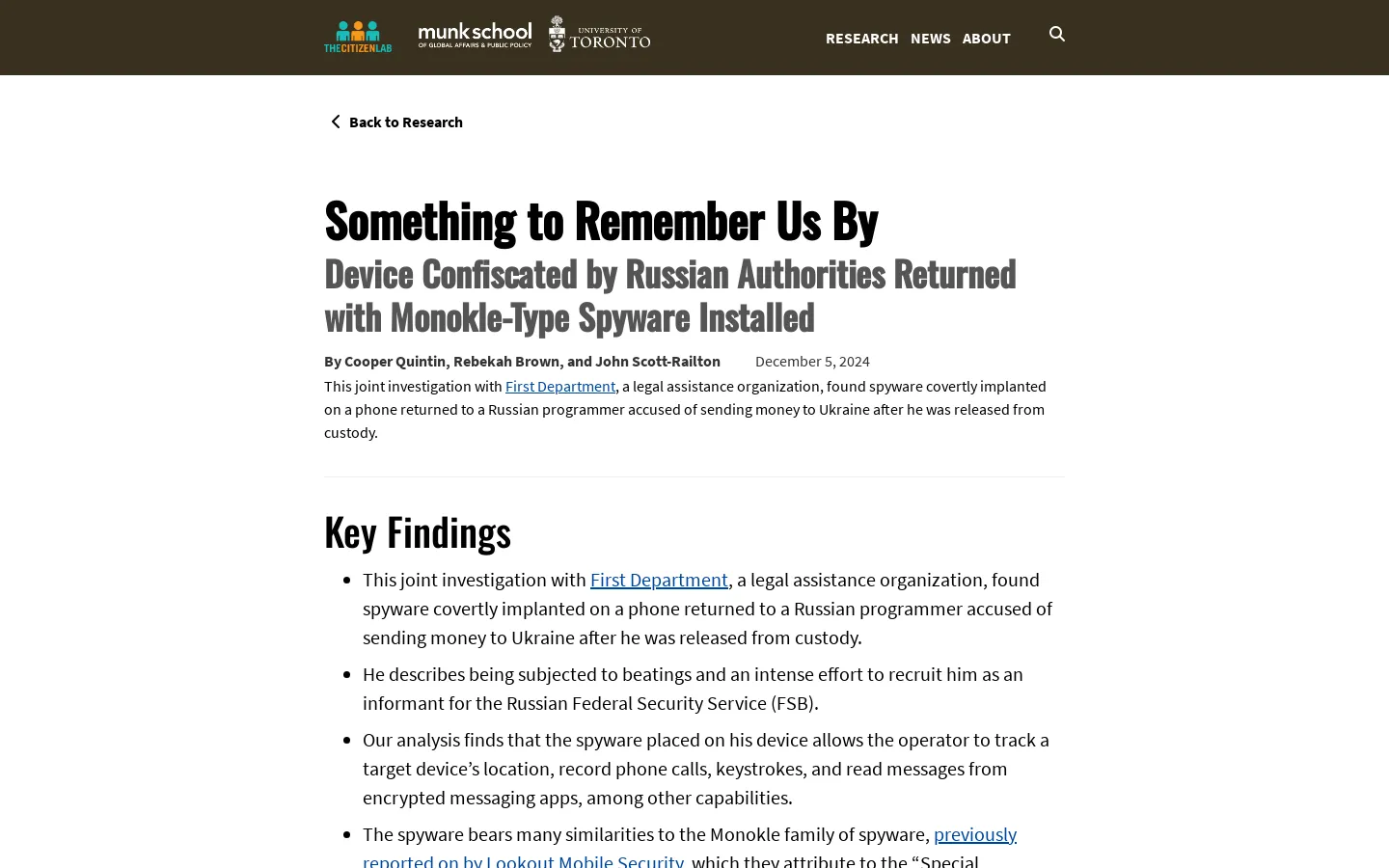
Expert Analysis Recommended After Device Confiscation Returns
/ 4 min read
Quick take - The article emphasizes the importance of seeking expert analysis for individuals whose electronic devices have been confiscated and returned by authorities, highlighting the potential risks of compromised technology and the need to protect personal data and privacy.
Fast Facts
-
Expert Analysis Recommended: Individuals should seek professional examination of returned devices to ensure they are free from malware or unauthorized surveillance after confiscation by authorities.
-
Compromise Risks: Confiscated devices may have hidden dangers, such as monitoring software or security vulnerabilities, even if they appear to function normally.
-
Protecting Personal Data: Consulting cybersecurity experts can help safeguard personal information and prevent potential data breaches before reconnecting to personal accounts.
-
Proactive Approach: The push for expert analysis reflects growing concerns about digital privacy and security, especially in contexts involving legal or border security situations.
-
Essential Tips: Users should conduct thorough device checks, use security software, change passwords immediately, avoid sensitive activities until devices are secured, and seek professional help if spyware is suspected.
Expert Analysis Urged After Device Confiscation: A Crucial Step for Digital Security
In the evolving landscape of digital security, a significant advisory has emerged for individuals whose electronic devices have been confiscated and subsequently returned by authorities. The recommendation is clear: seek expert analysis before resuming normal use. This guidance underscores the potential risks associated with compromised technology and highlights the importance of safeguarding personal data and privacy.
Understanding the Risks of Compromised Devices
When authorities seize electronic devices such as smartphones or laptops, they may conduct searches or install monitoring software. Even if a device appears to function normally upon return, it may harbor hidden threats like malware or security vulnerabilities that can jeopardize personal information. These risks necessitate a thorough examination by professionals who specialize in digital security.
The Role of Cybersecurity Experts
Consulting with cybersecurity experts or digital forensics professionals is crucial in identifying unauthorized changes or surveillance mechanisms that may have been installed during the seizure period. These experts possess the tools and knowledge to conduct comprehensive examinations, ensuring that any potential threats are identified and mitigated before the device is used again.
Protecting Personal Data and Privacy
The push for expert analysis reflects broader concerns about digital privacy and security in an era where technology is integral to daily life. As more individuals face device confiscation in various contexts—such as legal situations or border security checks—the need for professional scrutiny could become standard practice. This proactive approach not only protects personal information but also raises awareness about the importance of digital security in maintaining privacy rights.
Key Steps for Individuals Post-Confiscation
To navigate the complexities of technology and law enforcement, individuals should follow several key steps after their devices are returned:
-
Conduct a Thorough Device Check: Inspect for signs of tampering or spyware, such as unusual apps or settings.
-
Use Security Software: Equip devices with reputable security software to detect and remove potential threats.
-
Change Passwords Immediately: Update all passwords associated with apps and accounts to prevent unauthorized access.
-
Avoid Sensitive Activities Until Secured: Refrain from sensitive communications until confident in device security.
-
Seek Professional Help: Consult cybersecurity professionals if spyware infection is suspected.
By adhering to these steps, individuals can better protect themselves against spyware risks and unauthorized surveillance, particularly in politically sensitive contexts.
Common Pitfalls and Proactive Measures
Awareness of common pitfalls is essential in protecting against spyware and compromised devices. Users often fail to regularly update software, leaving devices vulnerable to new threats. Additionally, using weak passwords across accounts can facilitate unauthorized access. Ignoring security alerts can also lead to missed warnings about suspicious activity.
Implementing proactive measures such as using reputable antivirus software and enabling two-factor authentication can enhance security. Staying informed about cybersecurity trends is crucial, as the threat landscape continually evolves.
Essential Tools and Resources
For those at risk of digital surveillance, equipping oneself with the right tools is vital:
-
Mobile Security Software (e.g., Lookout Mobile Security): Offers protection against malware and spyware.
-
Digital Forensics Services (e.g., The Citizen Lab): Provides professional investigation into potential breaches.
-
Secure Communication Tools (e.g., Signal, ProtonMail): Ensures private conversations shielded from surveillance.
-
Device Hardening Guides (e.g., Electronic Frontier Foundation - EFF): Offers advice on strengthening device security.
By adopting these strategies, individuals can significantly enhance their digital security and mitigate risks associated with spyware and surveillance.



